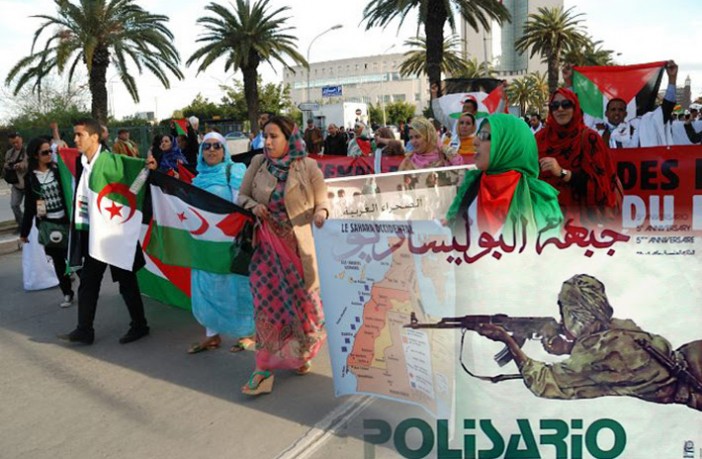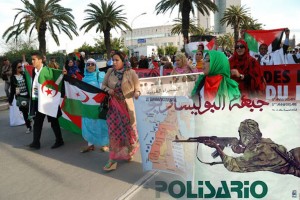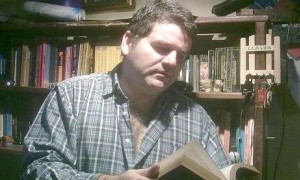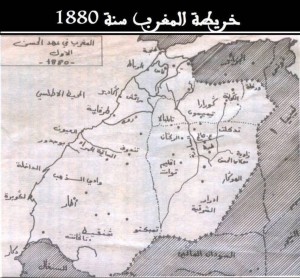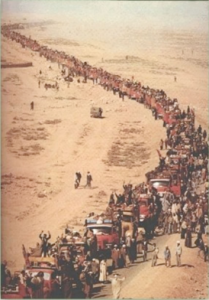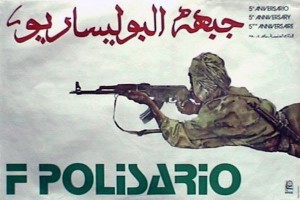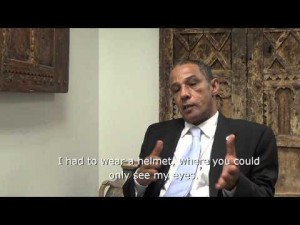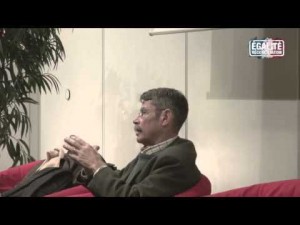Polisario Front: the conflict in the Western Sahara is a paradigm of the international conflict created by the destructive heritage of colonialism in Africa.
They say it’s an error to describe as reasoning the reliance on ridiculous arguments we search for to allow us to continue in our misguided beliefs. This was recently demonstrated by the apologists for the Algerian construction of the Polisario Front as a pro-independence Sahraoui movement.
Recently, I took a position in this column on the long conflict in the Western Sahara, formerly Spanish Sahara, relying on the same ideas I had before I undertook a long trip last February across Morocco. I had dialogues with the people, their leaders, and I crossed back and forth over this vast and beautiful geographical expanse.
Instead of finding arguments that might have brought out the cracks in my own, my route was marked by a series of personal attacks that were very characteristic of the members of reactionary NGOs when they are running out of arguments.
In fact, my criticisms weren’t focused on the pro-independence Sahraouis of the Polisario Front, a group of separatist activists who wish to proclaim the independence of a desolate and deserted place, supported by Algerian financing. The claims of the pro-independence Sahraouis only cease to be eccentric when one considers that in fact, Algeria wants to have access to the Atlantic coast, and so it is manipulating a minority of Sahraoui people to achieve its aim.
Paraguayan journalist Luis Agüero Wagner, echoing his country’s position in favor of a “solution to the Sahara question under the auspices of the United Nations and with respect for the territorial integrity of the Kingdom.” Photo: douradosagora.com
In reality, my criticisms were addressed to the Latin American left. Given that they have several territorial and separatist conflicts that haven’t been resolved in their own countries (Zulia, Santa Cruz, the access they won’t be ceded to the Bolivian Sea, and problems between Nicaragua and bordering countries), they venture to take a side in favor of a separatist group whose objectives are much more than merely suspicious.
Moroccan sources have clearly communicated that the problem has already caused a high level of attrition in the nations involved and that this conflict will be resolved when Algeria will demonstrate a real will to resolve it.
Polisario Front: The roots of the conflict
The roots of the conflict go back to an accord reached between France and Spain, pushed by other European powers, in November 1912, authorizing the Spanish to create a protectorate over the sultanate of Morocco, which is today known as the “Spanish Occupation” of Morocco.
During this historical period, which was interrupted by the outbreak of World War I and started again in 1919, the Spanish were already able to see for themselves the complexity of the Moroccan dilemma. They encountered the same people who endured the Romans and the great expansion of Islam, and they found them just as unwilling to bow under the weight of authority and they showed no intention of giving up their recalcitrant ways.
Morocco under the reign of Hassan I – 1880
Finally, after years of anarchy, Morocco achieved its independence from France in March, 1956, and from Spain in April 1956. However, Spain maintained the southern part of its former protectorate, and this position is at the origin of the current problem.
After the first phase of independence, Moroccan nationalists relied on history to make their claim for a “Greater Morocco”. During the time of the Almoravid dynasty, monk-soldiers had unified under their command a large part of the territory, which included all of the Spanish possessions in the North of Africa (Ifni, Villa Bens, Sahara, Ceuta, Melillaand the minor islands) as well as all of Mauritania, a significant part of Algeriaand Mali down to the Senegal River.
المرابطون (Al-Murābitūn) (ar) 1040 – 1147
This is what constitutes the historic roots of Morocco’s claims over the Sahara. What’s more, it should be recalled that the end of colonialism on Saharan lands held by Spain until 1975 is due to an intelligent maneuver pulled off by Morocco.
The Green March: end of “Spanish Sahara”
To permanently chase the Spanish out of the Sahara, Morocco organized the “Green March” and sent 350,000 citizens to occupy the territory. This maneuver launched in 1975 was directed by King Hassan II at the time that a political crisis was wracking Spain during the final stages of the Franco dictatorship.
This plan was a crowning success, and while General Franco was in his death throes, Spain had to cede its Saharan territories to Morocco. That is when Algeria’s expansionist ambitions appeared.
Polisario Front: Algeria’s expansionist ambitions
Algeria trained the Moroccan members of the Polisario Front while it was supposedly liberating Western Sahara from the hands of the Spanish. Before then, nobody had ever called for the creation of a state in this area. Then the western part of the Sahara, with its access to the Atlantic, became a compelling interest. Algeria’s interest is of course to have an opening to the Atlantic. This constitutes the backdrop of the conflict which does not seem likely to be settled in Algeria’s favor, given the support for Morocco expressed by the Arab League, and the generalized acceptance of Morocco’s plan for autonomy to finally bring an end to the problem.
The Polisario Front, also known by the name Frelisario when it came into existence, is a political and military movement in the Western Sahara, created in 1973 to fight against the Spanish occupation. Since 1975 it has struggled against Morocco for control of the Western Sahara. Wikipedia
Manipulated by Algeria for its own ends, the front is far from being united as the Salek Mohamed Ayad demonstrations have shown. One of the founders of the Polisario Front, Ayad accused the Saharan leaders of having become instruments doing the bidding of Mohamed Abdelaziz and his clan of bums and thieves, and also in the service of Algeria, which is manipulating the cause of the Saharan people in order to weaken its historic enemy, Morocco.
This Sahraoui dissident was, like others, imprisoned for 10 years in the jail cells of the Polisario Front in Tindouf. He describes them as “tombs, where people are locked up and mistreated mercilessly”. According to Ayad, most Sahraouis both in Tindouf and in Western Sahara are against the tactics of Abdelaziz and his accomplices. They are pocketing 80% of money received from international aide, including a large portion coming from Spain. But this King of the Bandits has imposed the silence of the dead among his ranks, with the complicity of media and his sympathizers.
This description of Ayad reinforces my idea about these Saharan “activists” as opportunists who profit from the tragedy of Africa’s people living in misery. These are people who hide their real selves behind insults, lies, and aggression. They have in fact used these columns for such purposes. Using aggression instead of a solid argument, they show themselves to be dictators in trainingand fat hogs who live off the fat of the generous international aide and Algerian support, while the villages of the Sahara suffer in silence because of partisan interests created solely to keep fueling an absurd conflict.
Polisario Front: Fraud committed against the whole world
Despite the reality of the situation, a significant part of world public opinion has been taken in by the proclamations of these group of bandits directed by Abdelaziz, which can also count on the support of most Latin American governments. This movement cooked up in Algiers has never been fully explained. Despite Abdelaziz’s attacks against Morocco, it should be noted that his entire family lives in Morocco, and they have never been targeted for reprisal.
A mystery that needs to solved is why the Sahraouis we see in the media have gone from the olive skin color that characterizes the people of the Maghreb to the dark skin color typical of Sub-Saharan peoples. Obviously, if a camera made it into the Tindouf camp and we asked the Sahraouis the cause they’re fighting for, they wouldn’t know what to say. NGOs have created similar agglomerations the world over. In Paraguay, they often exploit indigenous people.
Hermann Keyserling had already pointed this out: there is no proof, no rectification, no denial that can mitigate the effect of successful publicity. The Algerian construction of the Sahraoui cause is yet another example of this.
Luis Agüero Wagner
Diario Siglo XXI
Independent pluralist and open journal
Monday, May 12, 2014
InfoSahara.com




